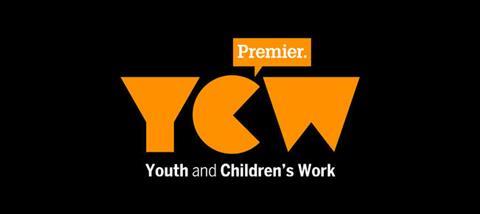
“The hour is late. Each day that passes sees people hungry for the first time, while others continue to suffer their hunger.” That’s the stark warning given in a parliamentary report into food hunger last year which highlighted the significant problem we have here in the UK. The issue was further highlighted recently when it emerged that more children were accessing free food during half-term holidays than ever before. Reports suggested record numbers of children were being fed by charities such as MakeLunch, a network which equips churches to open lunch kitchens during school holidays.
However, speaking to Premier Youth and Children’s Work, Rachel Warwick, founder of MakeLunch, said that we shouldn’t be surprised by the situation. “This has been going on for a long time but we’ve been ignoring the issue,” she said. “There’s been no provision for children in the school holidays. Our numbers are going up because our scale of provision is going up.”
A free school meal may not sound like a lot but many charities suggest that this will be the only meal some children get that day. According to statistics from the Department for Education, 1.08 million children in lower income families are registered for free school meals during term time, costing £370 per child per year (roughly £2 per meal).
During school holidays, parents and guardians foot the bill and in some cases the money’s not there to buy the extra food needed. A poll by YouGov recently found that around one in three parents had skipped a meal in order to make sure their child ate properly.
The Church has stepped up in recent years to help the situation through breakfast clubs, food banks and lunch kitchens. While great work is being done, only a small percentage of that 1.08 million is being reached. That said, Labour MP Frank Field, who chairs the All Party Parliamentary Group (APPG) on Hunger and Food Poverty, told YCW that it’s hard to imagine what the situation would look like without the input of the Church: “We wouldn’t be having this discussion if it wasn’t for the Church. They are the main drivers of this programme and it’s an irony that we live in a country where Christian adherence is declining yet when you want to do something like this you need the Church. There would be many, many more hungry children.”
In a report titled Feeding Britain by the APPG, Bishop of Truro Rt Rev Tim Thornton went further. He said: “We have seen marvellous work being carried out by volunteers which should be celebrated. We have witnessed some of the best aspects of human nature, as tens of thousands of people have responded to real need by creating organisations such as food banks. But, at the same time, we have also seen evidence of some of the worst aspects of human nature, in that there are people - men, women and children - in this country who are going hungry.”
The APPG is calling on the government to fund free meals to solve the problem and Frank Field thinks there’s an easy way to do this. “There’s money there,” he said. “We’re certainly pushing them to do that and to pay for it from the levy on sugary drinks.” Field however didn’t show much optimism when asked whether this issue could ever be solved. “I’d love that to be so but we’re a long way off that now,” he said.
MakeLunch currently works with 62 kitchens. But with around 50,000 churches in the country there’s much work to be done. Rachel Warwick was quick not to point the finger when asked why churches aren’t doing more. She says churches can’t be expected to do everything and that it is right that work is being done with those in debt or those who are homeless. But she was keen to highlight just how easy it is to start up a project. “We’re equipped to help churches. It’s really easy,” she said. “We have training and resources and we can link you up with funders.”
Rachel says that while the actual making of lunches was vitally important, there was a great need for making more noise about how bad the situation has got. “It’s frustrating,” she said. “One of the things that we really prioritise at MakeLunch is advocacy. We’re emailing MPs, inviting them to our clubs and trying to constantly challenge the government and say ‘this is what we’re doing about this problem - what are you doing about it?’”
A Government spokesperson said: “Tackling child poverty and disadvantage is an absolute priority for this Government. Thanks to our reforms there are more people in work than ever before and the number of children growing up in workless families is at a record low - down by 557,000 since 2010.”
Data from the National Child Measurement Programme for England has shown almost 8,000 children started their final year of primary school underweight, up 15 per cent since 2012. The Children’s Society’s ‘Fair and square’ campaign says there is a direct link between school performance, while Jamie Oliver’s ‘Feed me better’ campaign found that eating good food had a positive effect on results in both English and science.
The idea of feeding children may seem simple - but the benefits are huge and the need is even bigger.




























